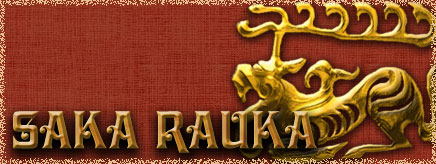
Originally Posted by
The Wizard

I recently had the displeasure to read "The Rise and Fall of Ancient Egypt" by Toby Wilkinson, a popular history book which was much lauded in the general press. I read it because I knew little about Ancient Egyptian history in detail and had the (ultimately vain) hope that perhaps here was a popular history book that managed to marry engaging writing with cutting-edge historical analysis. The author, after all, is an Egyptologist and Fellow at Cambridge.
Sadly, I was mistaken. It is apparently impossible for any author in the popular history genre, even an academic one like Wilkinson, to write a good book that at the same time deals with historical issues academically. Wilkinson's offering was chock full of gross oversimplifications (the issue of Ancient Egyptian chronology, for example), hapless generalizations (decline and prosperity are presented in an archaic duality of oriental decadence and youthful vigor), glossed-over debates (Akhenaten's reign is a good example, as is most of the Old Kingdom's history, alongside the entire issue of the Hyksos, the Bronze Age Collapse, or the Third Intermediate Period), selective interpretations of primary source material (most pharaonic reigns, as well as wars, are only interpreted according to reliefs on royal tombs, i.e., by taking pharaonic propaganda at face value), and complete omissions (no mention whatsoever about the fascinating relationship between Egypt and the Jews, and its implication for the latter's ethnogenesis). Almost every page had something to criticize. I myself was educated in modern history, with no formal introduction to ancient history whatsoever, and even I was able to see all of this!
Not only was the book marred by this, but it was also deeply flawed by transparent attempts to make Ancient Egyptian history relevant to a modern layman reader, alongside clumsy, ham-fisted attempts at analyzing Egypt's long-term legacy (the author attempted to nuance his history with a cliched bit on the "dark side" of Egypt, i.e. the absolute nature of pharaonic power; Wilkinson's claim, meanwhile, that Egypt "invented the nation-state," is preposterous).
I was thus deeply disappointed by the book. I was left wondering how a prominent academic could write something this bad. Perhaps it's the fact that his expertise seems to lie in Egyptian architectural history, rather than political or social? Maybe. But whatever the reason, "The Rise and Fall of Ancient Egypt" does not manage to escape the typical pitfalls of popular history: to write something that appeals to the general public apparently means writing something that obscures major issues and thus relegates the dynamism of our past to narratives of reigns, monuments, and wars. Much like Tom Holland or John Julius Norwich, and many other popular historians, Wilkinson merely presents a reworked and retold version of traditional histories that are almost as old as the subject itself. The only thing that makes Wilkinson a trifle better than a Holland or a Norwich is that he is slightly less affected by the fetish the latter two seem to have for battles, wars, and "great deeds." Wilkinson, at least, leaves some space to write about the lives of ordinary Ancient Egyptians, even if he does spend half a chapter on a Hollywoodesque description of the invasion of the Sea Peoples. If this is what it takes to popularize history, then the result is that our past is obfuscated rather than illuminated.






 Reply With Quote
Reply With Quote









 From Frontline for fixing siege towers of death
From Frontline for fixing siege towers of death x30 From mikepettytw for showing how to edit in game text.
x30 From mikepettytw for showing how to edit in game text. From Brennus for wit.
From Brennus for wit.



 ) and ordered it when I finished "persian fire" (by Tom Holland; nice read about persia, the greeks and some rather famous war...).
) and ordered it when I finished "persian fire" (by Tom Holland; nice read about persia, the greeks and some rather famous war...). (1.2, Alex. exe): Getai | Sab'Yn
(1.2, Alex. exe): Getai | Sab'Yn


 Alexander The Great Failure by John D. Granger, and Ancient Rome a New History by David Potter.
Alexander The Great Failure by John D. Granger, and Ancient Rome a New History by David Potter.
 Is eating a taco.
Is eating a taco.






Bookmarks